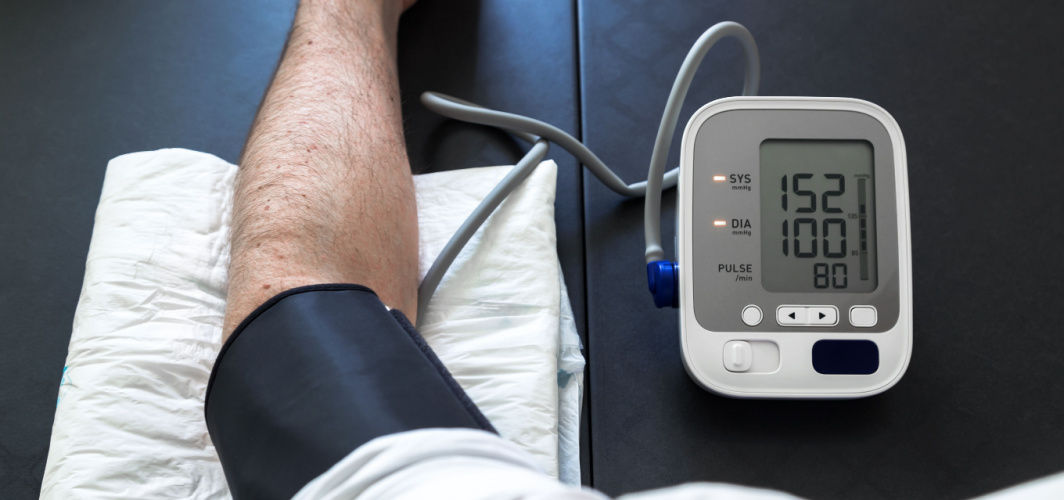General Health
Vegan Protein Vs Animal Protein: Which Is Best For Muscle Building?
3 min read
By Apollo 24|7, Published on - 18 April 2023, Updated on - 19 June 2023
Share this article
0
0 like

It’s widely known that proteins are a vital part of our diet, helping repair, build and maintain different parts of the body. Proteins are made up of amino acids. Notably, the human body needs 22 types of amino acids to produce protein. However, our bodies can neither manufacture amino acids naturally nor store proteins like other macronutrients. For this reason, it’s essential to get an adequate amount of proteins from the diet regularly.
Not getting enough proteins can prevent the muscles from repairing, growing, and functioning properly. Though you can get proteins from both animal and plant foods, there are many differences between the two types. There is a lot of debate about which of these is the best for muscle building. So, let’s learn what are the sources of both of these proteins and which is the best.
What are Some Protein-rich Foods?
Almost all foods contain proteins, albeit in different amounts. Usually, animal foods are considered to be richer in proteins than plant-based foods. However, plant proteins account for around 60% of the total protein consumption by humans worldwide. Some common sources of protein include:
- Red meat
- Chicken
- Pork
- Eggs
- Fish
- Whole grain cereals
- Tofu
- Tempeh
- Nuts
- Legumes
- Beans
Difference Between Plant and Animal Proteins
The biggest difference between plant and animal proteins is the amount of essential amino acids (EEA) present in them. EEA are the type of amino acids that cannot be produced by the body, therefore should be provided from diet or supplements. Animal proteins contain a higher level of EAA than plant proteins.
Sources of Animal Protein and Its Benefits
Most animal proteins are complete. This means that they contain all kinds of EAAs that the body needs to repair and build muscles. Research shows that animal proteins are more easily digested as compared to plant proteins. Due to its easier digestibility and higher amino acid content, complete animal protein is believed to be better for muscle building. Some of the best sources of animal protein with the highest levels of amino acids include:
- Eggs
- Fish
- Chicken
- Quail
- Turkey
- Cheese
- Milk
- Beef
Sources of Plant Protein and Its Benefits
Plant-based protein is also great for building muscles, however, most of these proteins are incomplete. Therefore, it’s advisable to add a mix of different plant proteins to make sure you get all the EAAs. Plant protein sources are usually low in cholesterol and saturated fat as compared to animal protein sources, reducing the risk of cardiovascular diseases. Moreover, plant protein is also rich in fibre, which helps improve the functioning of your digestive system. Some of the rich sources of plant protein include:
- Buckwheat
- Quinoa
- Hempseed
- Soy
- Chia
- Rice
Plant Protein Vs Animal Protein: Which is More Effective for Muscle Building?
Though, animal protein is believed to be a better choice for muscle building, a new study found that a steady, high-protein plant-based diet works just as well in making muscle. The new research suggests that a vegan diet with proteins sourced from non-animal foods can support muscle repair and growth just as effectively as a diet including protein-rich animal products.
This study involved young and healthy participants divided into two groups, one consuming a protein-rich plant-based diet and the other a protein-rich animal-based diet. The results of the study showed that both these groups experienced a similar amount of gain in muscle strength and mass despite including different sources of protein in their diets.
If you are looking to alter your diet with the intention of building muscles, then it’s advisable to consult with a dietician or a nutritionist, who can help you design an effective diet plan that works best for you.
Consult An Apollo Nutritionist
Medically reviewed by Dr Sonia Bhatt.
General Health
Leave Comment
Recommended for you

General Health
Can Strength Training Manage High Blood Pressure?
According to a recent study, it has been noticed that strength exercises can be effective in improving your blood pressure. It can further help in reducing the risk of acquiring cardiovascular diseases like arterial hypertension by improving your heart rate and efficiency.
.jpg?tr=q-80)
General Health
RA Factor Test – Normal Range, Purpose, Procedure, and Results Interpretation
Explore the RA factor test in detail; why it’s done, how it’s performed, and what your results mean. Understand normal RA factor ranges, especially in females, and how the test aids in diagnosing autoimmune conditions like rheumatoid arthritis.

General Health
5 Diseases That Show No Signs And Symptoms But Can Kill You
While most diseases have symptoms, a few of them don't. This can be fatal because they remain largely undiagnosed. Being proactive about your health can help you prevent these silent killers.
Subscribe
Sign up for our free Health Library Daily Newsletter
Get doctor-approved health tips, news, and more.
Visual Stories

Plant-based Foods That Are a Great Source of Iron
Tap to continue exploring
Recommended for you

General Health
Can Strength Training Manage High Blood Pressure?
According to a recent study, it has been noticed that strength exercises can be effective in improving your blood pressure. It can further help in reducing the risk of acquiring cardiovascular diseases like arterial hypertension by improving your heart rate and efficiency.
.jpg?tr=q-80)
General Health
RA Factor Test – Normal Range, Purpose, Procedure, and Results Interpretation
Explore the RA factor test in detail; why it’s done, how it’s performed, and what your results mean. Understand normal RA factor ranges, especially in females, and how the test aids in diagnosing autoimmune conditions like rheumatoid arthritis.

General Health
5 Diseases That Show No Signs And Symptoms But Can Kill You
While most diseases have symptoms, a few of them don't. This can be fatal because they remain largely undiagnosed. Being proactive about your health can help you prevent these silent killers.
